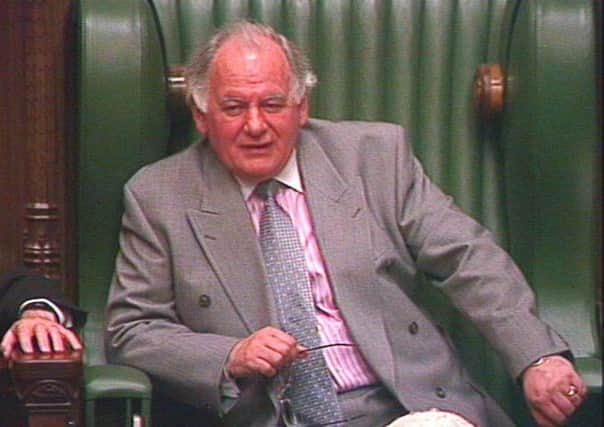Comment: Evel will change Commons Speaker role


But it is possible that his Lordship may end up carving out a place in history as the last MP to represent a Scottish seat to hold the great office of Speaker of the House of Commons.
It has to be said that, unlike the position of Prime Minister, which has been held by seven Scots since the start of the 20th century, the role of Speaker has not attracted many Scottish MPs. The last one before Lord Martin was William Morrison, who represented Cirencester in England, and you have to go back to the 1830s to James Abercromby to find a Speaker who was elected as an MP in a Scottish seat.
Advertisement
Hide AdAdvertisement
Hide AdHowever, potential Scottish hopefuls for Speaker will probably need to find an English seat, and even that may not be enough because of the toxic debate over English votes for English laws or Evel as it is more commonly known.
It seems likely that some form of Evel will be brought in at Westminster after the next election whether it is the Tory veto for English MPs or Labour’s much more watered down version at the committee stage.
However, the effect of either reform will be to greatly politicise the role of Speaker and undermine the neutrality he or she is expected to have. Both Tory and Labour proposals will require the Speaker to decide whether a Bill or vote affects only England or England and Wales – and will therefore exclude Scottish MPs at one stage or other.
It seems unlikely that MPs would readily trust an MP representing a Scottish seat to make that decision. And if Scottish MPs are barred from certain parts of Westminster life, how can an MP from a Scottish constituency possibly chair an English only debate?
If anything could underline the turning of Scottish MPs into “second class” MPs, it would be an effective bar from taking one of the Commons’ great offices. If Labour MPs supported a Scot for Speaker they could be accused of doing it to ensure their Scottish MPs held the balance of power. This could have an impact in the short term. It is expected John Bercow will retire as Speaker in the next parliament, and one of his possible successors is a Scot, one of the Deputy Speakers, Eleanor Laing (a Conservative elected for Epping Forest). She is well liked, but her Scottish heritage may become a problem.
Tradition has it that a new Speaker is dragged to the chair, a ritual dating to the time when those in the role risked losing their heads if they upset the king. The proposals on Evel may put the Speaker in the firing line again.